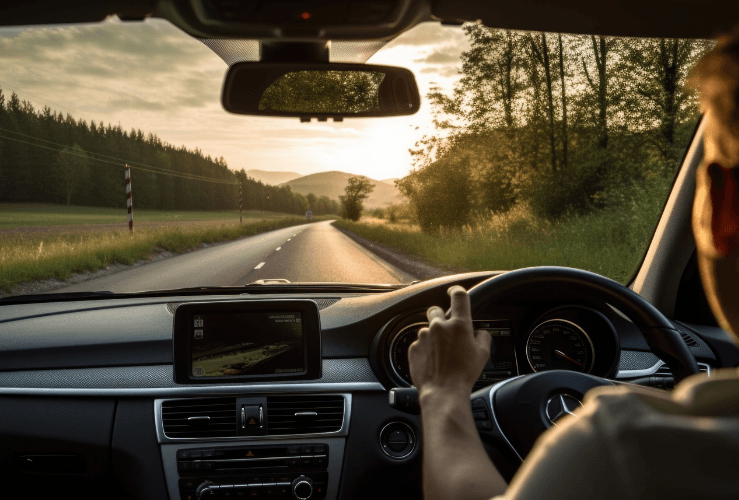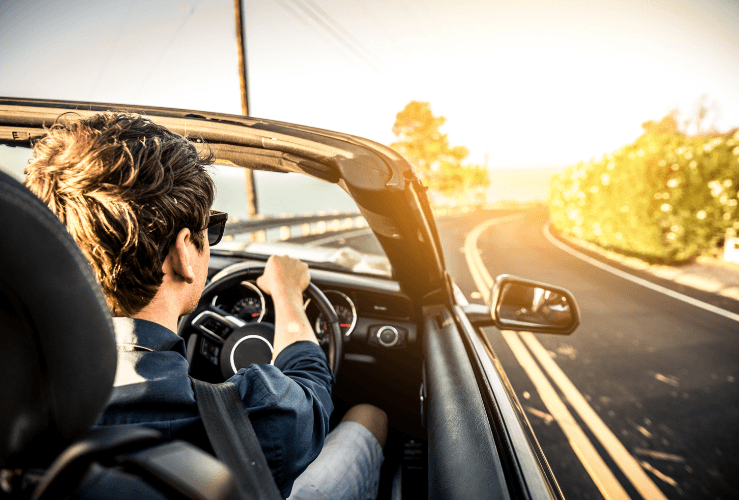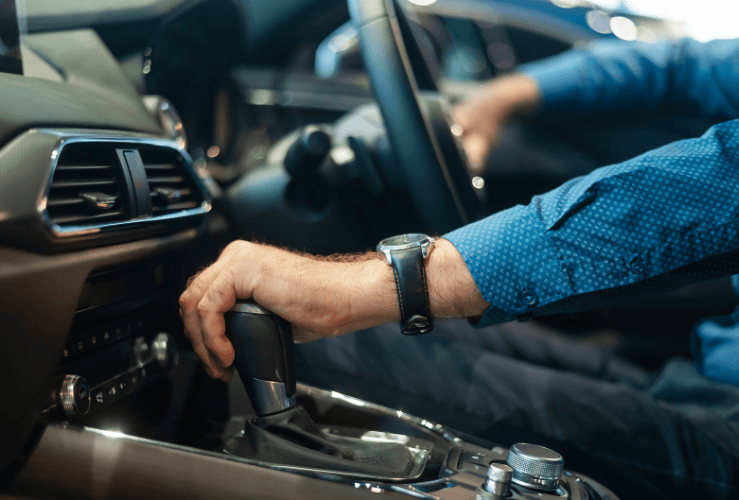It seems we Brits are still in love with the motor car.
Following a historic decline in car ownership during the pandemic, it increased by 0.36% or 124,393 cars to 35.15 million in 2022 - similar to pre-pandemic levels.
But why do we enjoy travelling on our own four wheels so much?
A TFL study revealed people own cars due to a combination of practical and emotional reasons, although they are often less aware of the emotional ones.
As we shall see, the love of the car goes a lot deeper than it simply being a convenient mode of transport...

More than just moving from A to B
There are multiple reasons for the UK's preoccupation with driving - which goes far beyond being able to travel from place to place: "Scholars of car psychology often focus on drivers' admiration, attachment or even addition to their cars, which can only be fully understood by considering factors beyond the basic mobility functions of cars" (Gossling, 2017).
Cars provide freedom
Cars give us the liberty to travel where and when we wish: the lure of the open road.
Stefan Gossling of SciTech Connect encapsulates this view: "I associate the car with first escapes, driving nowhere in particular in the middle of the night with a friend, movement being a goal in its own right."
Allysa Mae Zulueta of AutoDeal concurs: "It... leads us to a more adventurous and active lifestyle. Weekend ... getaway, long drives at night, food trips"
Car ownership offers convenience and time management
Allysa also talks about convenience: "Driving our own car is far more convenient than hailing a cab, booking for a Grab, or having someone wait for us."
Owning your own car enables you to come and go as you please, which could save a lot of time compared to using public transport, which runs to a set schedule. Using trains and buses also involves a lot of waiting - arriving early to ensure you don’t miss a bus, for example.
On the other hand, the train does offer the chance to do some work, enjoy time with friends, or simply enjoy looking out the window - endeavours that are not available to the motorist.

Control (vs public transport)
Travelling by bus or train has a number of advantages: you won't have to pay for things like fuel, insurance, parking, or maintenance.
However, public transport is prone to delays, and the experience of waiting for a bus engenders the sense that you're singing to someone else's hymn sheet, rather than your own.
The same is true of car shares and ride hailing services like Uber.
Owning and running one's own car offers a sense of control - of being in charge of our own destiny.

Social status
In one UK survey, 57% of respondents said the vehicle a person drove impacted how attractive they were perceived to be. This factor came ahead of job roles (21%), confidence (19%), and intelligence (17%).
With this in mind, it's easy to see why owning a car is considered a social status symbol.
Another paper concluded "Pro-car attitudes prevail revealing that cars remain a strong status symbol." It also found that "women are much less car oriented than men".
Perhaps the male focus on car ownership isn't surprising, since multiple studies suggest women find men with cars - ideally premium models - more attractive.
Dr Michael Dunn, who worked on one report, said: "Females focus on questions of wealth and status because if the male possesses those, that male would be in a better condition to rear healthy offspring."
Another study concerned with those considering buying a car concluded that "Respondents who are ... image-conscious and status seekers are more likely to buy a car in the near future."

Masculinity
As mentioned above, male car ownership can telegraph the notion of wealth and status to women - which might add to any sense of masculinity. But one study suggested it goes deeper:
"Car psychology scholars suggest that the act of driving is often an expression of masculinity (Gossling, 2017). The physical toughness and mechanical skills associated with driving are the constitutive forms of masculinity. ..."
Femininity
Women, meanwhile, are more concerned with practical considerations such as reliability, comfort and cost.
Safety tech is also important to female drivers. A survey by Cars.com "found that safety features like automatic emergency braking are more popular with women than men."

Security and health
"Cars are experienced as "cocoons" (Wells and Xenias, 2015) that protect us from the outside world" (Gössling, 2017).
It seems driving your own vehicle can make you feel more secure, too.
You're not sharing the same space as random members of the public. This means you don’t have to listen to the conversations/music/noise of others, or be near badly behaved passengers.
Driving your own car is simply more private.
And by avoiding public transport, you have a lower chance of getting ill (e.g. with Covid-19).
One study concluded: "The use of public transport was positively associated with contracting SARS-CoV-2 both before and after lockdown."
But it’s not all good news. Car owners do tend to exercise less and have more health problems than those without cars: "a stack of previous studies that have found that car owners tend to weigh more than non-owners."

Better employment outcomes
Owning your own car may also help with your career prospects, too. After all, cars enable you to reach almost anywhere in your vicinity, while bus routes have obvious limitations.
According to a Capital One survey carried out in the United States, "84% of lower-middle income, non-car owners turned down a job opportunity due to lack of car ownership".
In addition, “Two-thirds of respondents (67%) said owning a car opened up income opportunities that they would not have had without a car.”
That said, this data has to be tempered by the fact that the United States has a far less extensive public transport network than the UK does, particularly outside major urban centres.
Conclusion
In summary, the reasons why we love the car so much are myriad, ranging from convenience to privacy to status.
While the cost of motoring shows no sign of getting any cheaper, and despite the cost-of-living crisis, millions of Britons see big advantages to car ownership - and that looks set to continue.





